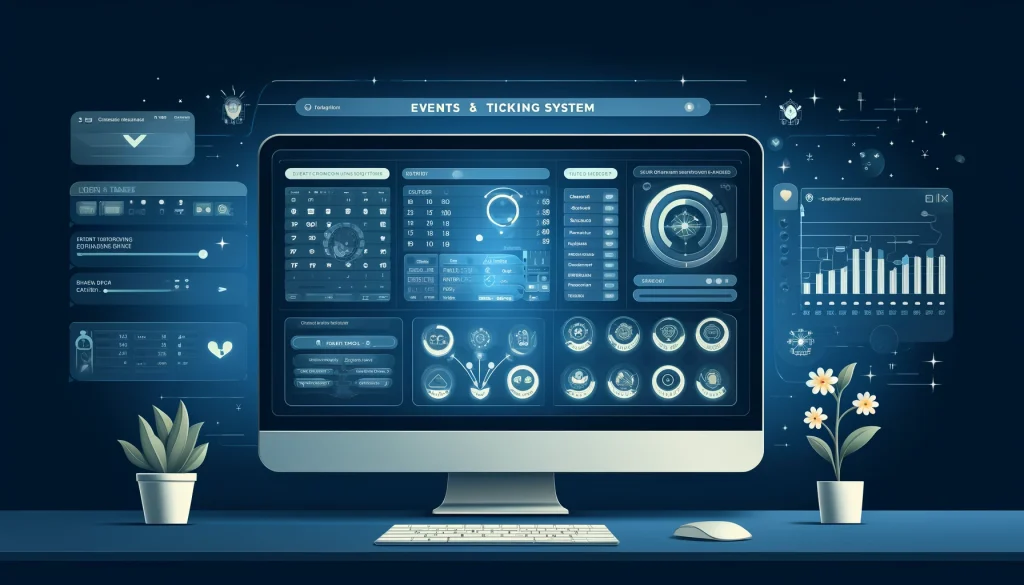Event Management:
Create and manage events, including conferences, concerts, festivals, workshops, webinars, and sports events.
Input event details such as date, time, location, venue, description, agenda, and speakers.
Organize events into categories, subcategories, or tags for easy browsing and search.
Ticketing Management:
Set up ticket types, pricing tiers, and seating options for events.
Generate electronic tickets with unique barcodes, QR codes, or confirmation numbers for attendees.
Sell tickets online through the system’s ticketing platform, website integration, or third-party ticketing marketplaces.
Online Registration:
Provide online registration forms for attendees to register for events, purchase tickets, and provide contact information.
Collect attendee details such as name, email, phone number, company, job title, and dietary preferences.
Offer discount codes, promotional offers, and early bird pricing to incentivize ticket purchases.
Payment Processing:
Accept payments securely through various payment methods, including credit/debit cards, PayPal, Apple Pay, Google Pay, and bank transfers.
Integrate with payment gateways to facilitate real-time payment processing and fraud prevention.
Set up payment schedules, installment plans, or recurring billing options for event tickets or registration fees.
Attendance Tracking:
Track attendance and check-in attendees electronically using ticket scanning devices, mobile apps, or QR code readers.
Monitor real-time attendance numbers and capacity limits to prevent overcrowding and ensure compliance with venue regulations.
Validate tickets and verify attendee identities to prevent unauthorized access to events.
Promotion and Marketing:
Promote events through digital marketing channels such as email campaigns, social media, search engine optimization (SEO), and online advertising.
Create event landing pages, microsites, or event listings to showcase event details, speakers, sponsors, and agenda.
Provide tools for attendees to share event information on social media and invite friends or colleagues to join.
Attendee Communication:
Send automated confirmations, reminders, and event updates to attendees via email, SMS, or push notifications.
Communicate important event information, such as schedule changes, venue updates, or emergency notifications, in real-time.
Event Analytics and Reporting:
Generate reports and analytics on ticket sales, revenue, attendance trends, demographic data, and marketing performance.
Monitor key performance indicators (KPIs) such as ticket conversion rate, attendee engagement, and ROI on marketing efforts.
Gain insights into attendee behavior, preferences, and satisfaction to improve future event planning and marketing strategies.
Integration and Customization:
Integrate with CRM systems, email marketing platforms, analytics tools, and other third-party applications to streamline workflows and data exchange.
Customize event pages, registration forms, and ticketing workflows to match branding guidelines and user experience preferences.
Compliance and Security:
Ensure compliance with data privacy regulations (e.g., GDPR, CCPA) and payment card industry (PCI) standards for handling sensitive customer data.
Implement security measures such as encryption, access controls, and regular security audits to protect attendee information and payment transactions.
By incorporating these components and functionalities, events & ticketing systems help event organizers manage events efficiently, increase ticket sales, enhance attendee experience, and maximize the success of their events.





